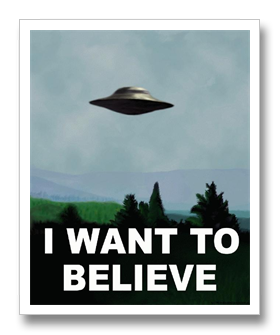“You think you can look into the face of pure evil. And then you find yourself paralysed by it.” – Dana Scully.
IRRESISTIBLE [Standalone] Aired January 13, 1995
Episode: 2×13 / 37 Overall
Director: David Nutter • Writer: Chris Carter
Scully and Mulder hunt down a fetishist who collects pieces of the dead.
The X-Files takes a side step from the paranormal this week to focus on a more personal, character driven story. For the first time since the Duane Barry incident, Gillian Anderson is given a chance to explore the effect that this event has had on the character of Dana Scully. Working through her post-traumatic stress, allowing the full weight of her experience to penetrate her psyche reveals that Scully is at her most vulnerable and this makes her feel very uncomfortable. As evidenced through her characterisation thus far, Scully is an empowered, independent person capable of standing toe to toe with her male counterpart. Unwavering in her convictions with a methodical and logical approach to her work, she is the epitome of professionalism. Which is why it’s so difficult for her now to concede to the fact that she is struggling to move past her ordeal without outside intervention. Too proud to admit to Mulder that she might actually need his support and also unwilling to place that burden upon his shoulders, she persists in dealing with her issues on her own. And up until now she’s managed to persevere, however when faced with this new case involving death fetishist Donnie Pfaster (Nick Chinlund), who harbours a deep seated hatred towards women, her strength of mind is pushed to breaking point.
Carter’s script, while certainly an engaging thriller with a well developed sinister antagonist, is at it’s heart a character study on Scully. Dana’s resistance to exposing her vulnerable side to Mulder is understandable. Her unwillingness to openly express her emotions is born out of a sense of pride in her work and her role as an F.B.I agent who needs to focus on cases with a clinical mindset. As mentioned, her independence is a point of pride for her. Adding to that, being a woman in a predominantly male work environment, with a male partner and supervisor, it’s understandable that she wouldn’t want to appear weak and succumb to the unwarranted stereotype placed upon her gender by the patriarchal society in which she exists. Having her break down at the episode’s conclusion is not played as a failing of her character or a comment on gender, but simply an acknowledgement that she is human and fallible. Her ordeal was traumatic and her response justifiable. The characters struggle is treated with dignity and she is never portrayed as weaker than Mulder or less capable, simply as a person who has undergone a life altering event and needs to consciously deal with her pain before moving on. This episode allows her to let go slightly and, without verbalising it to her partner, admit that she could benefit from his support.
David Nutter’s direction is very enjoyable to watch as he skillfully employs the use of light and shadow in order to enhance the already creepy performance by Nick Chinlund as Donnie. It’s quite a dark episode, visually, with some scenes played almost totally in blackness. Often we can only see part of the character’s faces, particularly Donnie. He uses the camera in interesting ways as well, having Donnie walk directly towards camera in the opening scene, or with the various low angle shots that create an unsettling feeling. The direction and camera work definitely make us feel uneasy right from the start and this helps us empathise with Scully and her sense of discomfort throughout the show. Carter was excited to work with Nutter again and reportedly wanted to give him something substantial to work with that was also something a little different than we’re used to.
It’s been said that this episode is notable for being one of the few in the series that contained no paranormal references. As Mulder iterates in the closing monologue, the fear derived from this scenario is that evil need not always come from some otherworldly entity, rather the danger can often originate from something much more real, more close to home. This is perhaps why Scully is so affected by this case, as compared with previous ones. It’s easier, particularly for someone as skeptic as Scully, to develop a detachment from the dangers of alien abduction, monsters or spectral entities. It’s much more difficult however to remain desensitised when the evil is so much more real and personal, as with Donnie Pfaster, who is simply a man with hatred in his heart.
★★★☆☆

